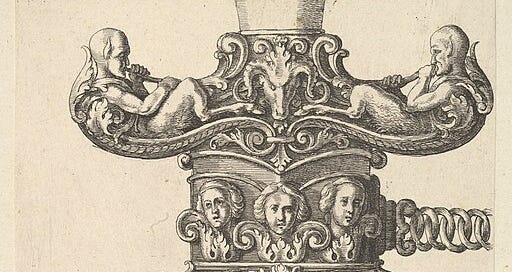The Knife, the Catacomb, the Crime, and the Saint
During the day Jane thought of it as a knife: half of it was designed to be killed by and the other half to kill with and this simplicity exhausted its purpose and belied its infinite complexity. Others, those who provided the money and therefore thought had control, sold it as an advanced weapons system. For them what something could be sold as and for was as much of its reality as they cared to contemplate. The machine could be sold for much: it was a weapon that learned everything it was possible to learn about somebody before and while killing them, fulfilling, not in that order, the two requirements of the international competitive conspiracy that was the intelligence world. Many bought it (in relative terms; it wasn’t cheap) and none who bought it failed to use it. In her nightmares Jane saw it as a catacomb of claustrophobic passages and cosmological geometry. Like the universe, it has no boundary but no limit to reach or cross. Like the universe, it constantly grew. Perhaps the universe didn’t expand because it was constantly being filled by the memory of the dead. Perhaps. Jane wasn’t a physicist so she considered her intuition no more than that. She knew for a fact that the machine held inside itself not lakes of data but roiling oceans of records and simulations, models and analysis of every person it had killed from its initial identification to a full copy and re-analysis of all autopsy records if it had left behind enough of a corpse for them.
More than anything Jane thought of it as a crime. It was one, mundanely, in the sense that were it not for the protection of money and the power that begat and was purchased by money anybody who sold, had, or used the machine should have been imprisoned at once. It had been used to do things so indefensible that not even the zealot and the venal would ever be told about, and Jane knew this a crime beyond and besides the law. But the thing itself was a crime and the crime was hers. It was horrifying, it made the world darker, and from the second she had been tasked with building it she had been corrupted by the terrible elegance of the design she glimpsed inside herself. In a years-long nightmare she had seen herself build it while knowing that she should be stopping herself, hating herself, struggling with something. She hadn’t.
Leaking the project did not absolve her in her own eyes. To her surprise the law thought different, and she was free the night when an intelligence agency — it’d be meaningless to ask which one — killed her. She had expected her murder, not that they’d use the machine. Her next-to-last thought was that this wasn’t a gesture to her but to the rest of the world: so what?
Her last thought, right before pain too large for thought and then the end of the pain and of everything else was that the machine was innocent of its actions and filled with the sorrow of the dead, but she did not have time to ask for its forgiveness.


